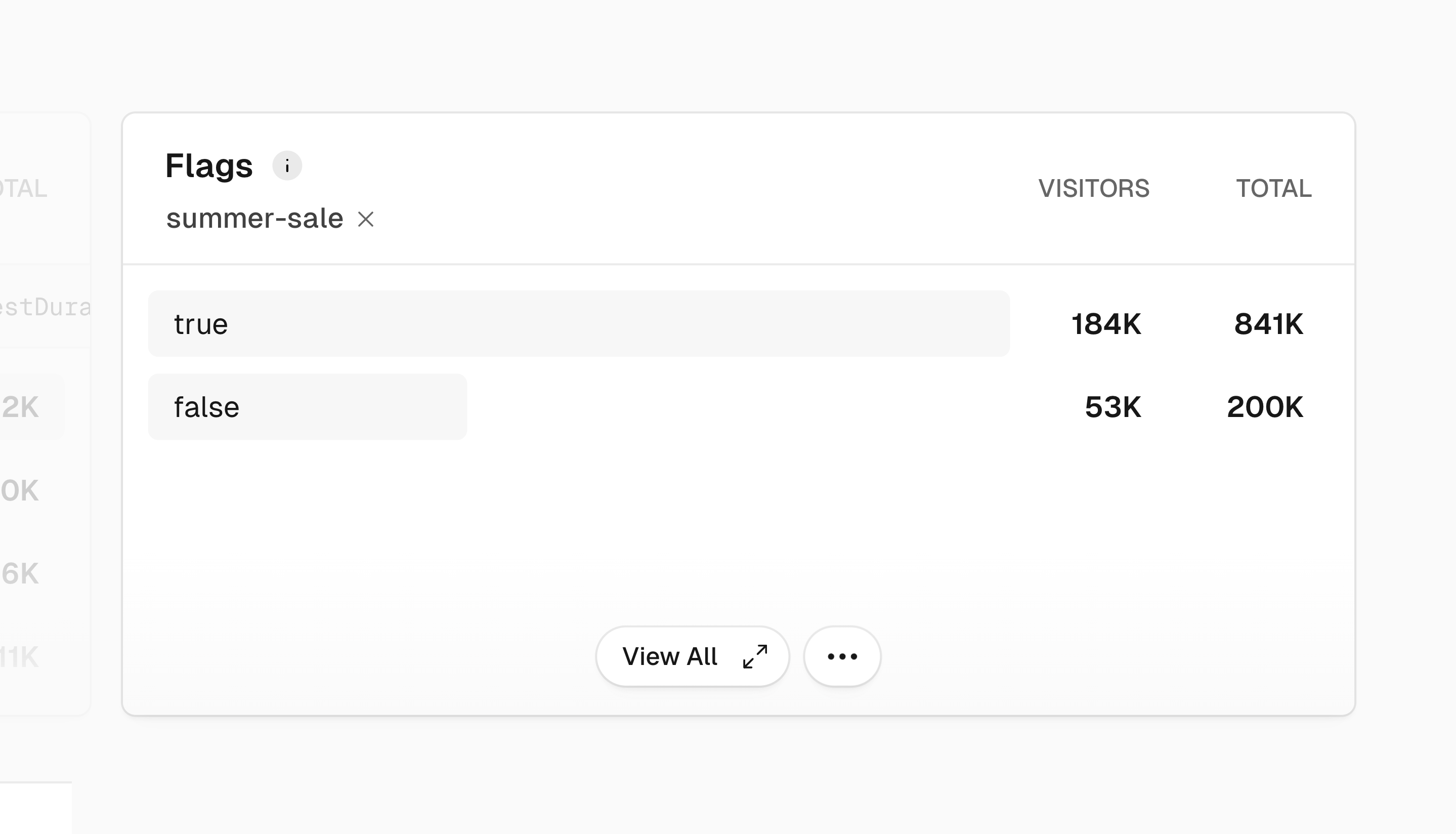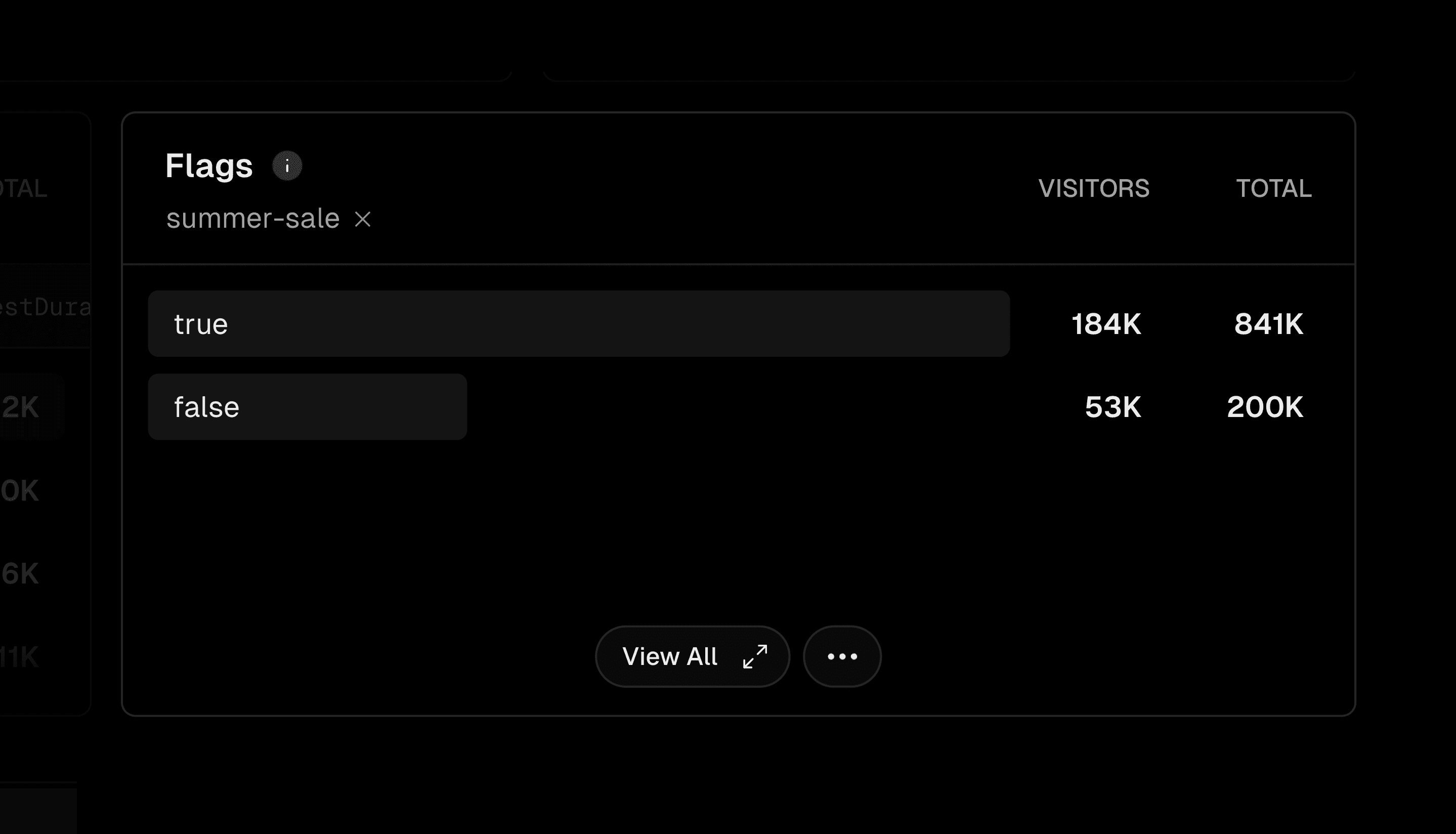Integrate flags with Vercel Web Analytics


Vercel Web Analytics can look up the values of evaluated feature flags in the DOM. It can then enrich page views and client-side events with these feature flags.
To share your feature flags with Web Analytics you have to emit your feature flag values to the DOM as described in Supporting Feature Flags.
This will automatically annotate all page views and client-side events with your feature flags.
Client-side events in Web Analytics will now automatically respect your flags and attach those to custom events.
To manually overwrite the tracked flags for a specific event, call:
If the flag values on the client are encrypted, the entire encrypted string becomes part of the event payload. This can lead to the event getting reported without any flags when the encrypted string exceeds size limits.
To track feature flags in server-side events:
-
First, report the feature flag value using to make the flag show up in Runtime Logs:
-
Once reported, any calls to can look up the feature flag while handling a specific request:
If you are using an implementation of the Feature Flags Pattern you don't need to call . The respective implementation will automatically call for you.
Was this helpful?

